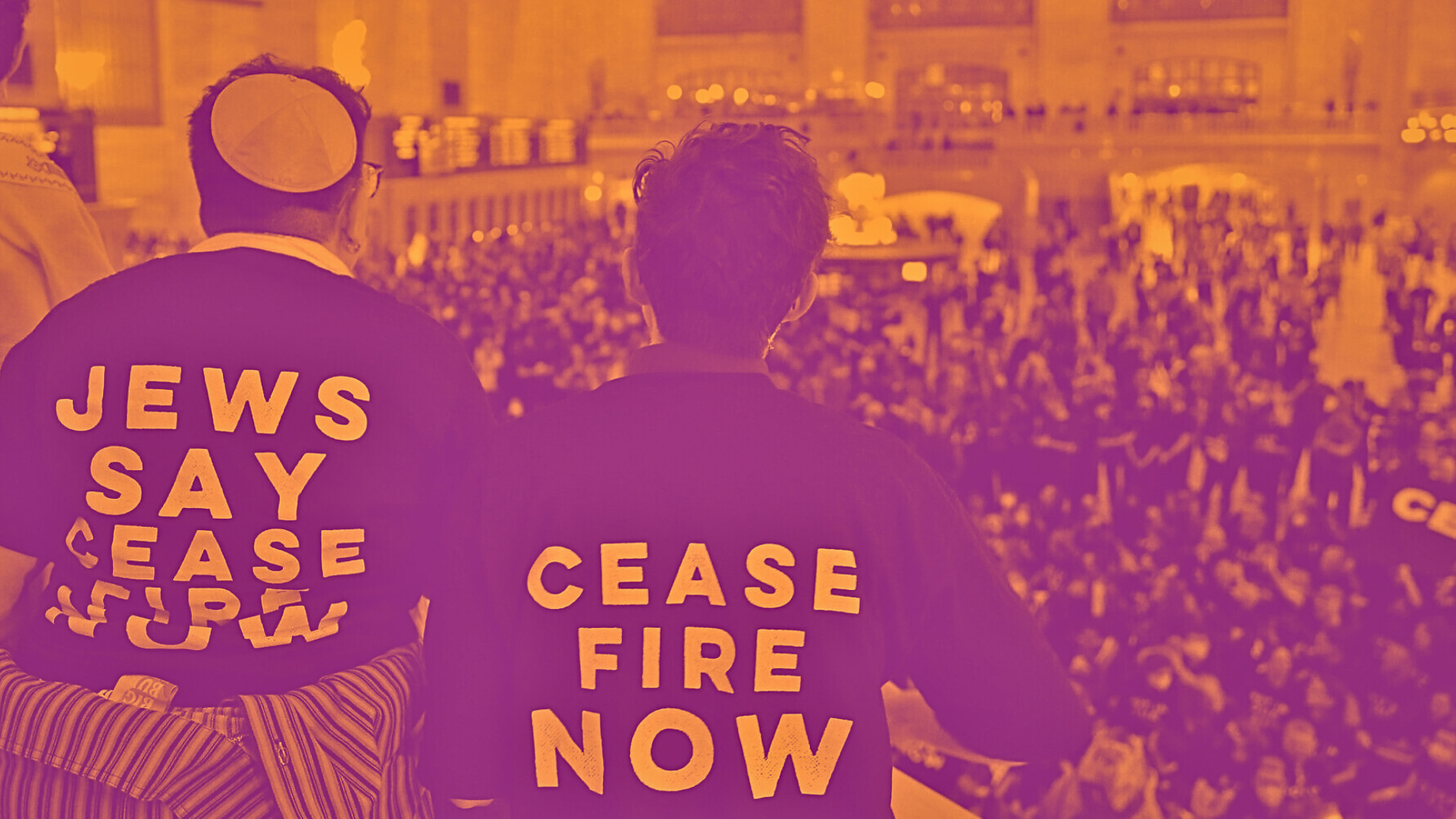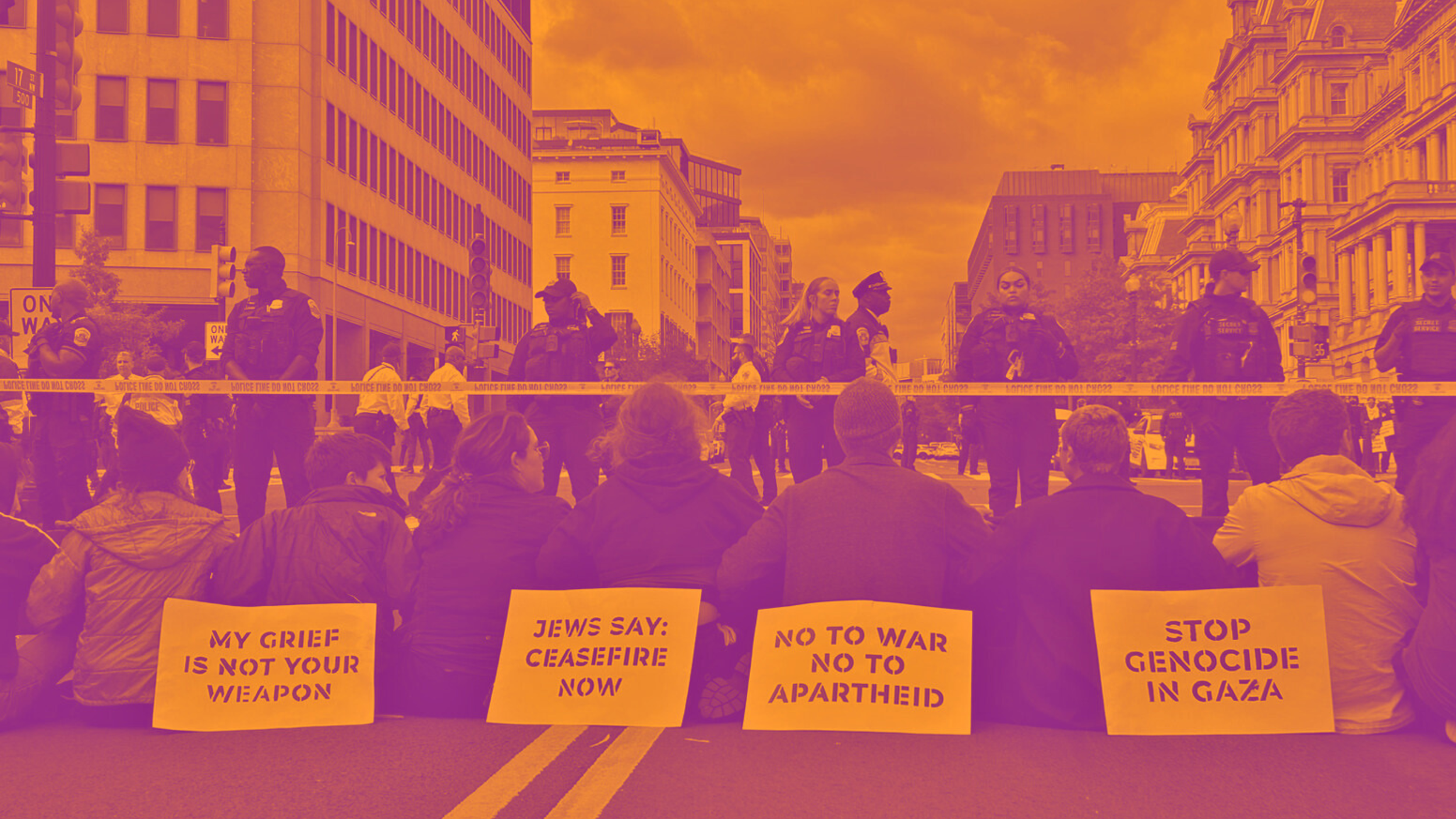


Co-creating a New World In Our Name in 5785
By Rabbi Becky Silverstein
As a rabbi, I am often in the position of helping others wrestle with big questions and grappling with them myself. Am I living life with integrity? What is the impact I want to have on the world?
As we approach Rosh Hashanah and Yom Kippur, the start of the new Jewish year, I am preparing to confront the distance between how I live my life and the Jewish values that call us to build a world that centers the sacredness of human life. I have felt the need to do this kind of cheshbon hanefesh, accounting of the soul, almost daily. Each moment of reflection has led me to advocating for Jewish safety, Palestinian safety, and safety for all people in the region. This is especially true as the Israeli military escalates its attacks in the West Bank, and Lebanon. The people of Gaza continue to face bombing, intentional starvation, disease, and displacement, those in Southern Lebanon flee or risk being killed by the falling bombs, and civilians in Northern Israel are facing deadly rocket fire. I wonder how any of this makes any of us safer.
Beyond my personal reflection, I am also reflecting on how the Jewish community is acting in relationship to our communal values. A desire to support Israel– sometimes unconditionally– has, at times, overridden the need to confront anti-democratic tendencies here and in Israel. Too often, “support for Israel or Israelis” has been understood through a false binary that tells us that advocating for Palestinian lives is in opposition to caring for the lives of Israelis and Israeli hostages. While the families of hostages call for an end to military aggression, many who hold power continue to call for unconditional military aid to Israel.
I am compelled to ask: if supporting military funding for Israel is not in our name, as numerous Jews have righteously claimed, what does it mean to act in our name, as Jews, and as humans? Jewish tradition invites us to live out our values through our deeds and behavior, to live Torah by being co-creators in building a more whole and just world through generative, life-affirming action.
It has been challenging to witness Jewish organizations lose funding over employees’ personal posts, and colleagues fired for attending rallies that affirm Palestinian dignity and entitlement to basic human rights. While none of these things compare to the loss of entire families in Gaza, they are an indicator of the fractured state of the Jewish community. I know that some Jews are afraid and have seen that fear separate us from one another and mask our shared humanity. It is this fear that has led parts of our community to support ongoing war, and silenced critique of Israel and vocal support for Palestine. Silencing pro-Palestine voices does not make us safer, it divides us, compels friends to stop talking to each other, and further threatens our already fragile democracy. Multivocality and debate have always been hallmarks of both our community and robust multiracial democracies where Jews and Palestinians are safest.
Within philanthropy, many funders have defunded or retaliated against those who have affirmed Palestinians’ human dignity and right to safety, stoking fear and polarization in our Jewish communities and among our non-Jewish neighbors. Many of these institutions have internalized a false binary that solidarity with Palestinians is inherently antisemitic. Philanthropy's core mission, at the end of the day, is deeply aligned with Jewish values: to uplift communities and create a world where all people thrive. Grantee partners should not be forced to choose between opposing a war and having their vital work funded. Funders who have pulled or paused grants are now deeply out of step with the growing global majority inviting us to imagine a different path forward towards multiracial democratic societies.
As a philanthropist and a rabbi, this Rosh Hashanah, I am proud to support the In Our Name campaign, a Jewish-led campaign to leverage philanthropic resources for Palestinian-led groups in Palestine and solidarity organizing in the US. Beyond raising money, the In Our Name campaign demonstrates the values-aligned role that Jewish philanthropy can play in support of the struggle for Palestinian freedom, dignity, and self-determination. Jewish tradition teaches that Yom Kippur repairs one’s relationship with the divine, but it is up to us as individuals to do repair with each other, in other words to do the repair needed in the material world. In Our Name is one tool for that repair, one place where we can do this work together.
Our tradition teaches that the world is conceived on Rosh Hashanah, hayom harat olam. This Rosh Hashanah, in 5785, I invite each of us to join in the task of expanding our imagination, of being co-creators of a world in which Palestinian safety and Jewish safety are so deeply tied together that we can hardly remember a time when it was not so, of aligning our actions with our deepest Jewish values: to affirm and protect life, because we are - each one of us - an entire world.



